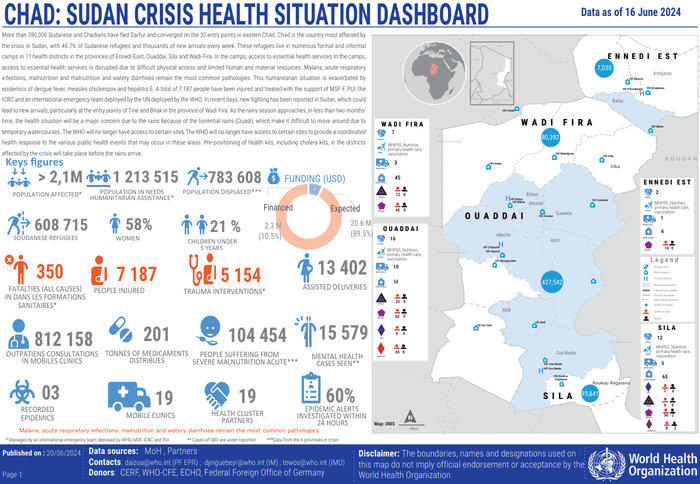Attachments
More than 780,000 Sudanese and Chadians have fled Darfur and are congregating at 32 entry points in eastern Chad. Chad is the country most affected by the Sudanese crisis, with 45.7% of Sudanese refugees staying in Chad, and thousands of new refugees entering every week. These refugees live in numerous formal and informal camps in 11 health zones in Ennedi East, Wadai, Shira and Wadi Fila regions. In the camps, basic health services are not available due to physical accessibility and limited human and material resources. Malaria, acute respiratory infections, malnutrition and watery diarrhea remain the most common medical conditions. The humanitarian situation is exacerbated by outbreaks of dengue fever, measles, chickenpox and hepatitis E. A total of 7,187 people were injured and treated with the support of the UN-contributed international emergency team deployed by MSF-F, PUI, ICRC and WHO. New fighting has been reported in Sudan in recent days, which may lead to new arrivals especially at the entry points of Tine and Birak in Wadi Phila state. With the rainy season approaching in less than two months, the health situation will be of major concern as travel will be difficult due to temporary waterways caused by torrential rains (wadis). WHO will be unable to access certain sites to provide a coordinated health response to various public health events that may occur in these areas. Pre-positioning of medical kits, including cholera kits, will be done in crisis-affected districts ahead of the rains.



